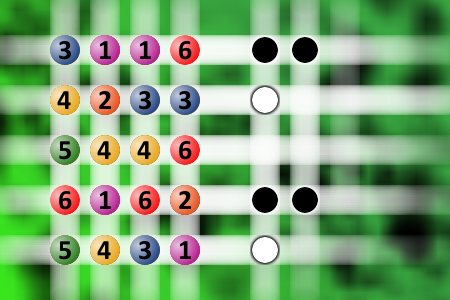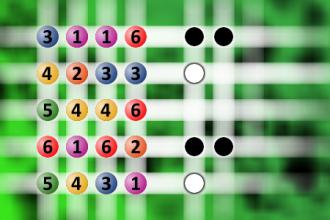Find the right combination
The computer chose a secret code (sequence of 4 digits from 1 to 6). Your goal is to find that code. Black circles indicate the number of hits on the right spot. White circles indicate the number of hits on the wrong spot.
Stopped for speeding
Officer: 'You were going at least 75 in a 55-zone.'
Man: 'No Sir, I was going 65.'
Wife: 'Oh, Harry, you were going 80.' (The man gives his wife a dirty look.)
Officer: 'I'm also going to give you a ticket for your broken tail light.'
Man: 'Broken tail light? I didn't know about a broken tail light!'
Wife: 'Oh, Harry, you've known about that tail light for weeks.' (The man gives his wife another dirty look.)
Officer: 'I'm also going to give you a citation for not wearing your seatbelt.'
Man: 'Oh, I just took it off when you were walking up to the car.'
Wife: 'Oh, Harry, you never wear your seatbelt.'
The man turns to his wife and yells, 'SHUT YOUR MOUTH!'
The Officer turns to the woman and asks, 'Ma'am, does your husband talk to you this way all the time?'
The wife says, 'No, only when he's been drinking!!!'

